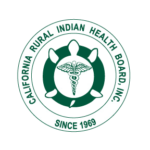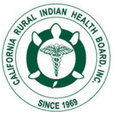[fullwidth backgroundcolor=”” backgroundimage=”” backgroundrepeat=”no-repeat” backgroundposition=”left top” backgroundattachment=”scroll” video_webm=”” video_mp4=”” video_ogv=”” video_preview_image=”” overlay_color=”” overlay_opacity=”0.5″ video_mute=”yes” video_loop=”yes” fade=”no” bordersize=”0px” bordercolor=”” borderstyle=”” paddingtop=”20px” paddingbottom=”20px” paddingleft=”0px” paddingright=”0px” menu_anchor=”” equal_height_columns=”no” hundred_percent=”no” class=”” id=””][title size=”1″ content_align=”left” style_type=”single” sep_color=”” class=”” id=””]Core Projects[/title][fusion_text]
Tribal Behavioral Risk Factor Community Survey
CTEC has implemented a Tribal Behavioral Risk Factor Community survey project. The purpose of this project was to gather information about health behaviors and outcomes, preventive practices, and health care access to track health conditions in American Indian populations in California. The modules and questions asked included the core CDC Behavioral Risk Factor Surveillance System (BRFSS), those suggested by the CTEC Advisory Council and those identified in the Indian Health Priorities Assessment. From 2012-2013 CTEC attended 13 AIAN cultural and community events such as Pow Wows, Big Times, health fairs, and community gatherings in California and collected 975 surveys. To be eligible, participants must have self identified as AIAN, been present at the event, at least18 years of age, and reside in California. The information obtained from the Tribal Behavioral Risk Factor Community Survey will assist in identifying health behaviors that need to be addressed in tribal communities and will be used to develop strategies to prioritize health care needs, identify gaps, and enhance currently available services and programs.
Native Oral Health Project
The Native Oral Health Project is an R21 pilot project funded by the National Institute of Dental and Craniofacial Research (NIDCR) of the National Institutes of Health (NIH). The NOHP aims to evaluate the feasibility of an educational intervention to educate on dental health and is based on the traditional practice of storytelling.
Participants included AIAN women 18-45 years of age, either pregnant or the mother of children aged 6 or younger. They were asked to listen to a traditional story with oral health messaging, and provide feedback through surveys and focus groups.
This pilot projectwas conducted between 2012 and 2014 in 3 locations across California – Hoopa, Redding and Eureka/Arcata region.
Community Participation – The NOHP is advised by a Community Advisory Board with members representing Northern, Southern and central CA, including out study locations. Tribal Liaisons in each of the 3 study locations helped with publicity and participant recruitment.
For more information and latest news, including results, and future direction – Click Here.
TARGET Project
Public health accreditation is a national initiative to advance quality and performance among Tribal, state, local and territorial health departments. The TARGET Project (Tribal Accreditation Readiness through Guidance, Education & Technical assistance), is a partnership with California Tribal Epidemiology Center, Red Star Innovations, the Inter Tribal Council of Arizona, and the Institute for Wisconsin’s Health through a grant from the Robert Wood Johnson Foundation. CTECs role was to coordinating a Tribal Accreditation Training Institute and a Public Health Accreditation Roundtable, which occurred in October, 2013. For more information – [insert red star link]
Record Linkage Project
Health-related data for AIANs are often prone to significant race misclassification, as demonstrated by the results of earlier record linkage studies of state data. The resulting underestimation of disease burden for AIANs often hides the true number of cases among AIAN in California. This has wide implications for effectiveness of advocacy effort as well as perceived need for Indian health care funding. Thus CTEC’s concern over the issue of racial misclassification of AIAN has led us to conduct the record linkage studies for STDs and Injuries, in collaboration with government entities including the California Department of Public Health (CDPH), the Office of Statewide Health Planning and Development (OSHPD), and IHS. CTEC is in the process of requesting data from these agencies.
Health Priorities Assessment
CTEC seeks to conduct projects guided by the health priorities of the communities we serve. In order to determine community health priorities, CTEC disseminates the Health Priorities Assessment survey at the beginning of every cooperative agreement with IHS. The survey asks respondent to rank the top 10 health priorities in their respective community as well as provide basic demographic information such as age group, and tribal affiliation.
For the 2011-2015 cooperative agreement, CTEC collected over 450 surveys through online dissemination. The heath issues of highest concern for California AIAN are:
- Diabetes
- Drug Abuse
- Eating Healthy, Exercise, and Controlling Obesity
- Mental Health
- Alcohol Abuse
- Dental Health
- Elder Care and Support
- Heart Disease and Stroke
- Getting or Paying for Medications
- Mother and Child Health
To see the full report of CTEC Indian Health Priorities – Click Here.[/fusion_text][title size=”1″ content_align=”left” style_type=”single” sep_color=”” class=”” id=””]Supplemental Projects:[/title][fusion_text]
- National Tribal Epidemiology Centers (TEC) Community Health Profile (CHP): The National TEC CHP report is a collaborative initiative between all the 12 Tribal Epidemiology Centers across the nation. The CHP is an advocacy tool to better educate health professionals, legislators and policy makers on Indian health care issues. To see the final report [insert link]
- Obesity Research Study: CTEC , in collaboration with researchers at John’s Hopkins Bloomberg School of Public Health is conducting a study ‘The effects of increased economic resources on weight-related health: A quasi-experimental study.’ This study seeks to understand how economic resources resulting from the introduction of Indian gaming impact weight-related health outcomes, particularly in children. Outcomes under investigation include childhood obesity, gestational weight gain, and children’s size at birth. CTEC developed a community health profile of American Indian childhood obesity among 5th, 7th and 9th graders in California using data from this project from the California Department of Education. [insert link]
- Gaining Ground Initiative: Gaining Ground is a two-year initiative managed by the National Network of Public Health Institutes. California was one of 7 states selected for the funding from the Robert Wood Johnson Foundation with the goal to develop sustainable statewide systems to catalyze public health accreditation and support performance improvement in tribal and small, rural local health departments. CTEC’s involvement is to assist in the development and dissemination of a tribally relevant assessment instrument that is an adjunct to the state instrument to conduct a tribal public health accreditation readiness assessment and a tribal needs assessment to determine tribal status on accreditation-related activities.
- CASPER: CTEC assisted Napa County Public Health and the California Department of Public Health in a Community Assessment for Public Health Emergency Response (CASPER) following the August 24th earthquake. Volunteers walked door-to-door conducting the in-person survey in Napa and American Canyon, California on September 16, 17, and 18 to better understand how the earthquake impacted the residents and to determine needs when preparing for future emergencies. A total of 241 surveys were completed in the two communities, a 95.5% completion rate.
[/fusion_text][/fullwidth]

